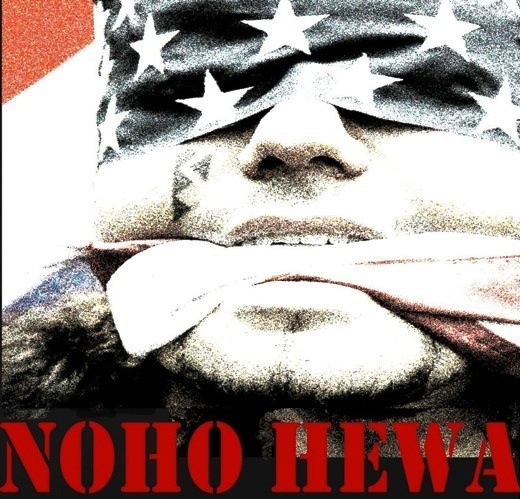SUBHEAD: Free movie showings of "Strong Voices, Passionate Hearts" and "Noho Hewa" Friday, March 8th Kapaa Library at 6:30pm.
By Ray Catania on 26 February 2013 for Island Breath -
(http://islandbreath.blogspot.com/2013/02/movies-on-hawaiian-culture.html)

Image above: From ().
WHAT:
"Strong Voices, Passionate Hearts"
Kauai Community Youth speak out against Governor Abercrombie's PLDC (Public Land Development Corporation) at the Mayor's office.
"Noho Hewa"
How US Military and Corporations like Walmart destroy Kanaka Maoli sacred sites. Discussion to follow movies.
There will also be a Photo Display of Wailua Beach erosion and shoreline destruction caused by the Mayor's Bike Path.
WHEN:
Friday, March 8th, 6:30pm to 9:30pm
WHERE:
Kapaa Public Library
1464 Kuhio Hwy
Kapaa, HI 96746
CONTACT:
For more information, call Ray Catania, 634-2737
or James Alalem at 635-0835
"Strong Voices and Passionate Hearts" is about Kauai's youth speaking out against the Public Land Development Corporation at the Mayor's office. Also a photo display of the Wailua Beach desecration by the bike path will also be shared.
"Noho Hewa" received the Hawaii International Film Festival's highest award in the documentary film category, the Halekulani Golden Orchid award for Best Documentary. Noho Hewa connects the military occupation of Hawaii to the fraudulence of statehood, the Akaka Bill, homelessness, desecration and more. Featured interviews: Haunani-Kay Trask, Kaleikoa Kaeo, Noenoe Silva, Keanu Sai, J Kehaulani, Kauanui and others. For more information about the film, go to the Noho Hewa website, http://www.nohohewa.com/
Noho Hewa film review from Big Island Weekly
http://www.bigislandweekly.com/articles/2009/02/11/read/news/news03.txt
Ethnic cleansing isn't just something that they do physically to people, it's something that happens in the mind." This was said by Haunani-Kay Trask in an onscreen interview in the documentary "Noho Hewa." Haunani goes on to say that ethnic cleansing establishes within a people's mind-set that "You have no place to live. You do not have a home, so you do not exist."
This manao (thought) is what Anne Keala Kelly is trying to capture in her first feature length documentary, "Noho Hewa."
.
By Ray Catania on 26 February 2013 for Island Breath -
(http://islandbreath.blogspot.com/2013/02/movies-on-hawaiian-culture.html)

Image above: From ().
WHAT:
"Strong Voices, Passionate Hearts"
Kauai Community Youth speak out against Governor Abercrombie's PLDC (Public Land Development Corporation) at the Mayor's office.
"Noho Hewa"
How US Military and Corporations like Walmart destroy Kanaka Maoli sacred sites. Discussion to follow movies.
There will also be a Photo Display of Wailua Beach erosion and shoreline destruction caused by the Mayor's Bike Path.
WHEN:
Friday, March 8th, 6:30pm to 9:30pm
WHERE:
Kapaa Public Library
1464 Kuhio Hwy
Kapaa, HI 96746
CONTACT:
For more information, call Ray Catania, 634-2737
or James Alalem at 635-0835
"Strong Voices and Passionate Hearts" is about Kauai's youth speaking out against the Public Land Development Corporation at the Mayor's office. Also a photo display of the Wailua Beach desecration by the bike path will also be shared.
"Noho Hewa" received the Hawaii International Film Festival's highest award in the documentary film category, the Halekulani Golden Orchid award for Best Documentary. Noho Hewa connects the military occupation of Hawaii to the fraudulence of statehood, the Akaka Bill, homelessness, desecration and more. Featured interviews: Haunani-Kay Trask, Kaleikoa Kaeo, Noenoe Silva, Keanu Sai, J Kehaulani, Kauanui and others. For more information about the film, go to the Noho Hewa website, http://www.nohohewa.com/
Noho Hewa film review from Big Island Weekly
http://www.bigislandweekly.com/articles/2009/02/11/read/news/news03.txt
Ethnic cleansing isn't just something that they do physically to people, it's something that happens in the mind." This was said by Haunani-Kay Trask in an onscreen interview in the documentary "Noho Hewa." Haunani goes on to say that ethnic cleansing establishes within a people's mind-set that "You have no place to live. You do not have a home, so you do not exist."
This manao (thought) is what Anne Keala Kelly is trying to capture in her first feature length documentary, "Noho Hewa."
.
No comments :
Post a Comment